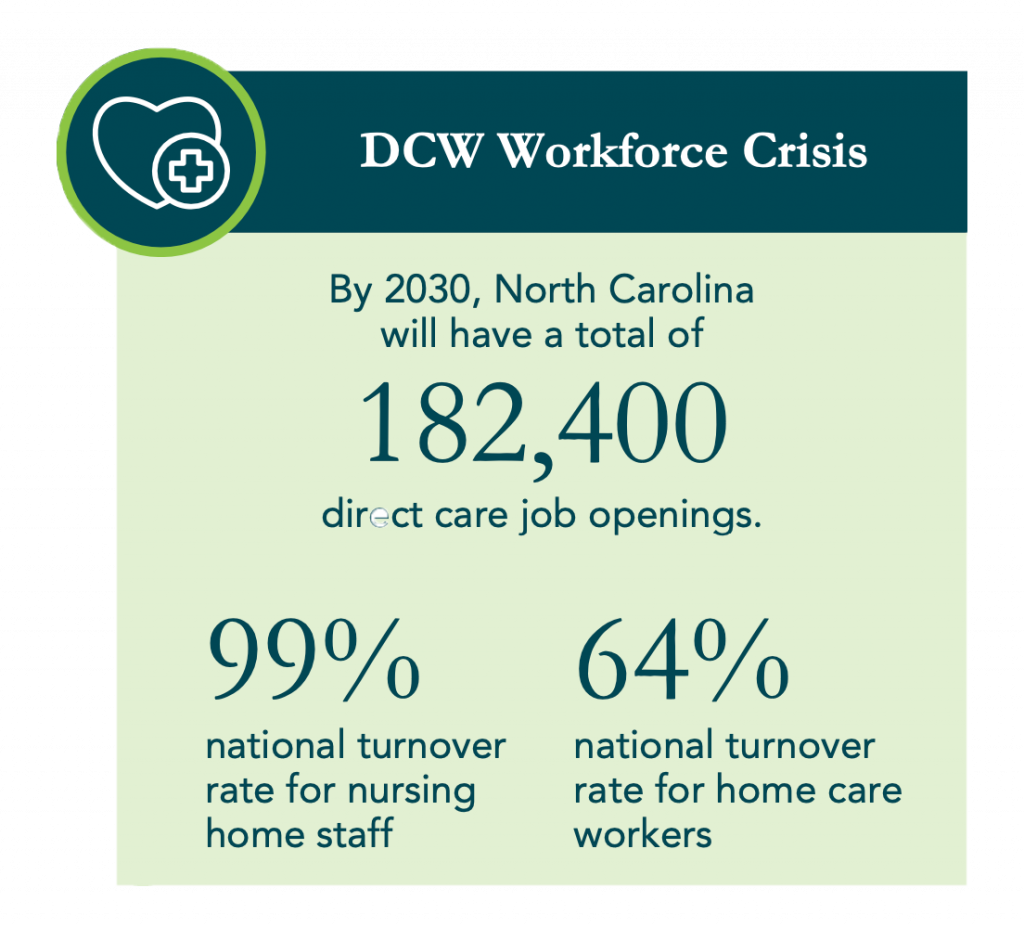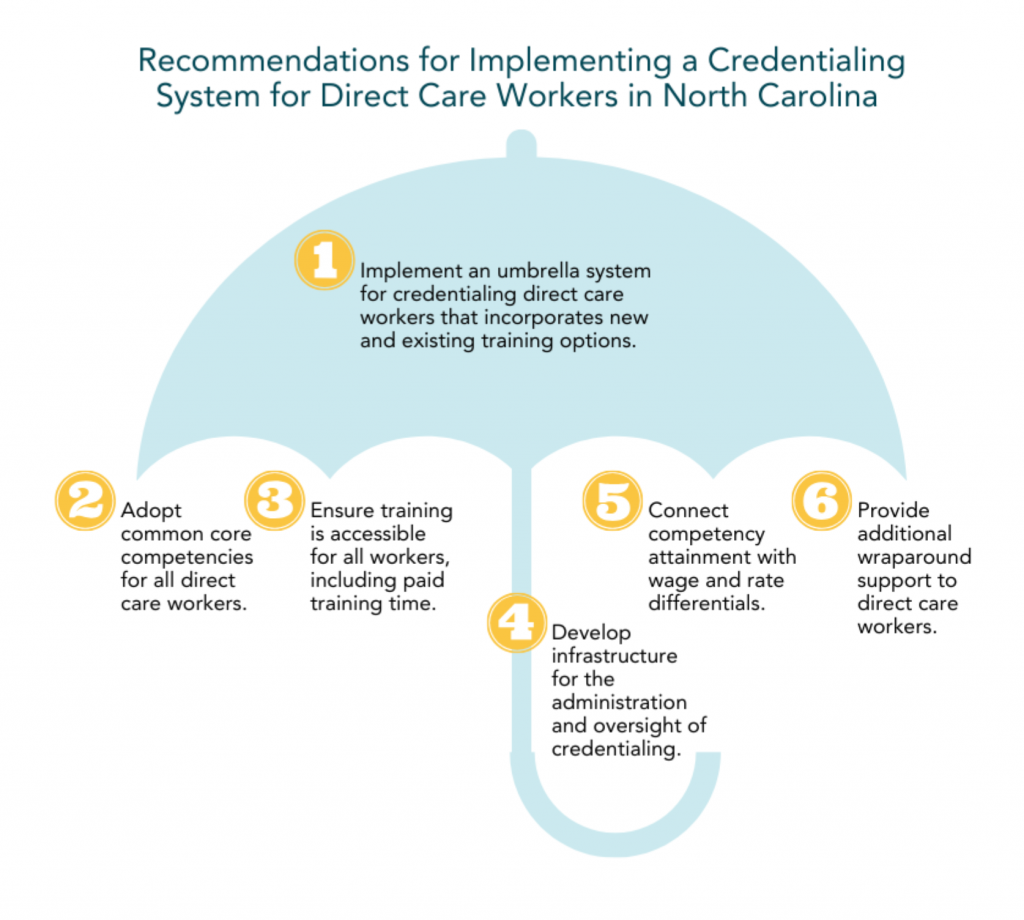NC AHEC Recommends Comprehensive Plan for Direct Care Worker Certification and Retention
The NC AHEC Program has released a report of recommendations commissioned by the North Carolina Department of Health Benefits to determine the scope and impact of direct care worker (DCW) certification and to develop a plan to increase the recruitment and retention of the DCW workforce. NC DHHS announced the report findings in a press release last week.
The plan includes concrete recommendations for policy and practice, as well as an understanding of the challenges facing direct care workers both in and outside of home and community-based settings.
Who is a Direct Care Worker?
A direct care worker is a health care professional who assists older adults and people with disabilities, chronic health conditions, and/or acute illnesses in various home and community-based settings, including private homes, residential care facilities, nursing homes, and hospitals.
The DCW workforce includes certified nursing assistants, home health aides, personal care aides, and caregivers, among other professions. View a comprehensive list of DCW definitions and profiles in Appendix A of the report.
WHY DIRECT CARE WORKERS?
In March 2023, North Carolina’s Caregiving Workforce Strategic Leadership Council noted that the state lost over 9% of its direct care workforce between 2016 and 2021. North Carolina will see a total of 182,400 direct care job openings by 2030.
Facing national turnover rates of 99% for nursing home staff and 64% for home care workers, North Carolina’s workforce shortage is “reaching crisis levels” as reported by NC AHEC.

What is being recommended?
To inform the final recommendations and a plan to support their implementation, NC AHEC identified four premises:
- Reliable funding must be made available to invest in the recommended activities.
- Direct care workers move between settings, specialities, and populations.
- Existing DCW training curricula and platforms can be leveraged.
- The solution to the direct care worker crisis is not unilateral.

Under this framework, NC AHEC developed an implementation support plan to create a means of certifying direct care workers in all settings:
- Implement an umbrella system for credentialing DCWs that incorporates new and existing training options.
- Adopt common core competencies for all direct care workers.
- Ensure training is accessible for all workers, including paid training time.
- Develop infrastructure for the administration and oversight of credentialing.
- Connect competency attainment with wage and rate differentials.
- Provide additional wraparound support services to direct care workers.
One of the themes that emerged from our discussions with employers is the need to create hope for the future for direct care workers. The recommendations contained in this report are only the first steps to developing a comprehensive and effective strategy to support this valuable workforce.
NC AHEC’s Recommendations for HCBS Worker Certification
What’s next?
Beyond its own initial findings and implementation support plan, NC AHEC outlines potential next steps for further research into specialty training for peer support specialists and paid family caregivers (also known as care extenders) and planning for strategic and collaborative opportunities between health partners in North Carolina.
Read the report in full to explore its complete findings and detailed credentialing plan for the DCW workforce.
